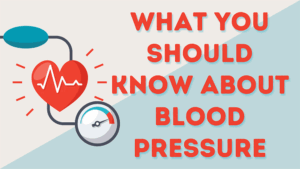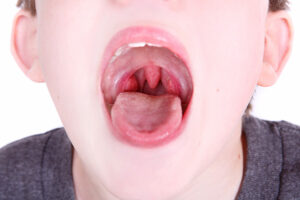Introduction: What Your Body Might Be Trying to Tell You

Imagine this—your periods are irregular, you’re gaining weight without much change in diet, acne is popping up, and facial hair seems more noticeable. Deep down, you feel something’s off. That inner nudge could be pointing toward PCOS.
Polycystic Ovary Syndrome (PCOS) is far more common than many realize, affecting 1 in 5 women in India alone. But more alarming is how silently it creeps in. In this blog, we’ll dive deep into PCOS symptoms, the root hormonal imbalances, and natural remedies that go beyond quick fixes to offer real, sustainable healing.
What Is PCOS? (Polycystic Ovary Syndrome Explained Simply)

PCOS is a hormonal disorder where the ovaries may produce excess male hormones (androgens), disrupt ovulation, and form small cysts.
Common Causes of PCOS Include:
Insulin resistance (affecting over 70% of PCOS women)
Chronic inflammation
High androgens (male hormones)
Genetic and lifestyle factors
PCOS isn’t a one-size-fits-all condition—it varies widely among individuals, making personalized management essential.
Symptoms of PCOS – Recognizing the Signs
| Symptom | What It Looks Like |
|---|---|
| Irregular periods | Missing or inconsistent menstrual cycles |
| Weight gain | Especially around the belly area |
| Acne & facial hair | High androgen levels causing unwanted hair and breakouts |
| Hair thinning | Scalp hair loss, often resembling male-pattern baldness |
| Insulin resistance | Sugar cravings, fatigue, difficulty losing weight |
| Fertility issues | Irregular ovulation or no ovulation at all |
| Mood swings | Anxiety, depression, or irritability |

These symptoms may not appear all at once—but even 2 or 3 together could indicate a hormonal imbalance worth checking.
Natural Remedies for PCOS (That Actually Work)
1. Food Is Medicine: Adopt a PCOS-Friendly Diet
Eat high-fiber foods: Oats, broccoli, chia seeds
Choose low glycemic index (GI) carbs: Quinoa, brown rice, sweet potatoes
Include healthy fats: Olive oil, flaxseeds, walnuts
Avoid: Sugar, refined carbs, processed dairy
A Mediterranean-style diet is especially helpful, supporting hormone balance and reducing inflammation.
2. Seed Cycling: A Natural Hormone Syncing Tool
Seed cycling is a holistic practice where specific seeds are consumed based on your cycle phase:
| Cycle Days | Seeds to Eat | Purpose |
|---|---|---|
| Days 1–14 | Flax + Pumpkin | Boost estrogen |
| Days 15–28 | Sesame + Sunflower | Support progesterone |
Within 2–3 cycles, many women report improved periods, clearer skin, and fewer PMS symptoms.
3. Science-Backed Supplements for PCOS
| Supplement | What It Helps With |
|---|---|
| Inositol (Myo + D-Chiro) | Insulin resistance, ovulation, egg quality |
| Spearmint Tea | Reduces androgens, helps with facial hair & acne |
| Cinnamon (1.5g/day) | Improves menstrual regularity & insulin control |
| Vitamin D & Omega-3 | Hormone balance, immune support |
| N-acetylcysteine (NAC) | Works like Metformin for insulin & fertility |
| Zinc & Magnesium | Mood, acne, inflammation |
4. Lifestyle Tweaks That Matter
Exercise Regularly:
30 minutes of walking, yoga, or strength training
Improves insulin sensitivity and mood
Prioritize Sleep:
7–9 hours of restful sleep
Regulates cortisol and reproductive hormones
Manage Stress:
Practice deep breathing, meditation, journaling
Chronic stress raises cortisol, worsening PCOS
5. Avoid Endocrine Disruptors (EDCs)
These are chemicals that mimic hormones and disrupt your system:
Avoid plastic containers (use glass or steel)
Switch to natural skincare and hygiene products
Check for parabens, sulfates, and artificial fragrances
Even small changes can reduce your toxic load and support hormone recovery.
A Real-Life Example: Hope in the Details
A friend of mine in her early 30s struggled with PCOS silently—irregular periods, stubborn belly fat, fatigue. Rather than relying solely on medications, she slowly integrated:
A daily flaxseed smoothie
Spearmint tea at night
20 minutes of walking
Journaling for stress relief
In 4–5 months, her cycle became regular, she lost 4 kg, and her energy levels improved noticeably. What changed? Not just her diet—but her entire relationship with her body.
PCOS vs. PCOD – A Quick Clarification
| Feature | PCOS | PCOD |
|---|---|---|
| Full Form | Polycystic Ovary Syndrome | Polycystic Ovarian Disease |
| Hormonal impact | Severe – affects fertility, metabolism | Less severe, often lifestyle-driven |
| Ovulation | Often absent | Delayed but may still occur |
| Long-term risk | High (diabetes, infertility) | Moderate |
Both conditions require care, but PCOS is considered a more chronic and system-wide disorder.
Conclusion: Healing PCOS Is Possible—Naturally & Holistically
PCOS is not a life sentence. It’s your body’s way of asking for alignment—nutritionally, emotionally, and hormonally. With the right mix of food, herbs, supplements, rest, and mindfulness, many women are managing PCOS naturally and reclaiming control over their health.
Call to Action
Have you ever tried seed cycling, spearmint tea, or inositol for PCOS?
Share your experience in the comments below.
Subscribe to our newsletter for more research-backed wellness tips.
And if you found this helpful, share it with a friend who needs to hear it today.







